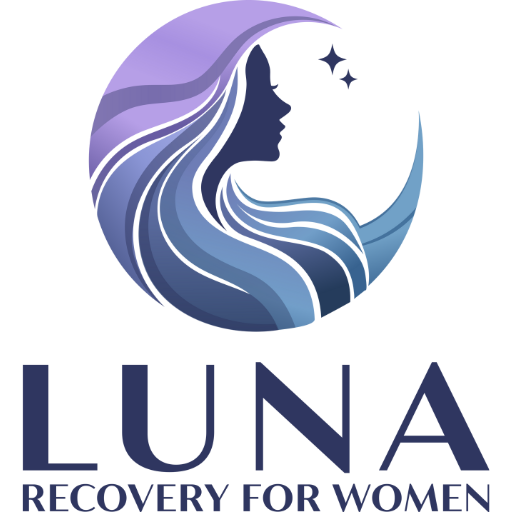Detoxing from weed/marijuana—also known as THC (tetrahydrocannabinol) detox—is the process by which the body clears cannabis from its system. Whether you’re aiming to pass a drug test, begin a sober lifestyle, or simply take a tolerance break, understanding how marijuana detox works is crucial.
This article outlines the key elements of detoxing from cannabis, including the biological process, how long it takes, common withdrawal symptoms, and strategies for successful recovery.
What is Marijuana Detox?

Marijuana detox refers to the body’s natural method of eliminating THC, the psychoactive ingredient in cannabis. Unlike alcohol or certain drugs that leave the body relatively quickly, THC binds to fat cells, causing it to remain detectable for days or even weeks—especially in those who use it frequently or in high doses.
As the body metabolizes THC, its byproducts—mainly THC-COOH—are expelled through urine, feces, and sweat. This process can trigger withdrawal symptoms as your body adapts to functioning without cannabis. While detox from weed is not typically dangerous, it can be mentally and physically uncomfortable.
How Long Does THC Stay in the Body?
The time it takes for marijuana to clear from the body varies based on individual factors like usage frequency, body composition, metabolism, and hydration. Here’s a general breakdown:
- Occasional users: 3–7 days
- Regular users: 10–30 days
- Chronic/heavy users: Over 30 days
Different drug tests have different detection windows. Urine tests—most commonly used—can detect THC in regular users for up to 30 days. Blood, saliva, and hair tests each have their own timelines. For a more detailed breakdown, Healthline offers a helpful guide.
Typical Withdrawal Symptoms
THC withdrawal symptoms usually begin 1 to 3 days after stopping and peak within the first week. Some individuals may continue to experience symptoms for two weeks or more.
Common symptoms include:
- Irritability and mood swings
- Anxiety and depression
- Insomnia or vivid dreams
- Headaches
- Decreased appetite
- Cannabis cravings
These symptoms result from the brain’s adjustment to the absence of THC, which normally influences mood-regulating chemicals like dopamine. The severity and duration depend largely on how long and how heavily you’ve used cannabis.
Stages of Marijuana Detox
Detox usually unfolds in three key phases:
1. Initial Stage (Days 0–3)
THC levels begin to drop, and early symptoms like restlessness, irritability, and cravings may surface.
2. Acute Withdrawal (Days 4–14)
This is typically the most difficult phase. Emotional symptoms (anxiety, depression, irritability) peak, and physical symptoms like headaches and sleep disturbances may arise.
3. Subacute Phase (Day 15+)
Physical symptoms fade, but psychological effects—like cravings or mood changes—may continue sporadically, especially when triggered by stress or routines associated with marijuana use.
Can You Speed Up THC Detox?
There’s no guaranteed way to flush THC instantly, but certain habits can help your body detox more efficiently:
- Hydration: Water supports kidney function, but won’t drastically speed up THC elimination.
- Exercise: Burning fat can release stored THC into the bloodstream, potentially increasing detectable levels short term but helping clear it over time.
- Diet: A high-fiber, antioxidant-rich diet supports liver and digestive health, aiding detoxification.
Be cautious with over-the-counter detox kits and teas. Many are unregulated and make false claims. For reliable advice, consult resources like the Mayo Clinic on safe detox practices.
When is Medical Detox Recommended?
While marijuana detox doesn’t typically require inpatient care, medical supervision can be beneficial—especially for individuals with co-occurring mental health disorders.
Medical detox programs offer:
- 24/7 monitoring
- Therapeutic support
- Medication for anxiety, insomnia, or depression
- Personalized care plans
If cannabis use is part of a broader substance use disorder, professional help increases the likelihood of long-term recovery.
Managing Mental and Emotional Challenges
Detoxing isn’t just physical—it’s an emotional process, too. For many, marijuana was used to cope with stress, anxiety, or depression. When you stop, these emotions may resurface or intensify.
Support strategies include:
- Cognitive-Behavioral Therapy (CBT): Helps identify triggers and develop healthy coping mechanisms.
- Support groups: Communities like SMART Recovery or Marijuana Anonymous provide shared experiences and accountability.
- Mindfulness practices: Apps like Headspace or Calm can ease anxiety and improve focus during recovery.
Healthy Habits for a Successful Detox
Building new routines is essential to staying clean. Try incorporating the following:
- Regular exercise for energy and mood regulation
- Balanced meals to nourish your body and stabilize emotions
- Sleep routines for mental clarity and physical healing
- Journaling or meditation to track progress and reflect on growth
Keeping your schedule filled with rewarding, non-cannabis activities can minimize cravings and reinforce your commitment to sobriety.
Handling Cravings
Cravings are a normal part of the detox process. They’re often triggered by stress, boredom, or past habits.
Effective coping techniques include:
- Urge surfing (observe the craving like a passing wave)
- Distraction (go for a walk, call a friend, do a creative activity)
- Routine changes to break associations with cannabis use
The more consistently you resist cravings, the weaker they become over time.
Is Relapse Part of the Process?
Relapses can happen—and they don’t mean you’ve failed. Use them as opportunities to learn what triggered the setback and how to adjust your recovery strategy.
After a relapse:
- Reflect on the situation and identify what led to it
- Reconnect with your support network
- Adjust your coping strategies or treatment plan as needed
Resources like SAMHSA’s treatment locator can help you find immediate support in your area.
Find Marijuana Detox Help in North Andover, MA

If cannabis is negatively impacting your life, it may be time to seek professional help. Quitting without support can be difficult—especially if underlying mental health issues are involved.
At Luna Recovery for Women, we offer weed detox placement services, and a variety of outpatient treatment options tailored to your needs:
- Behavioral therapy
- Dual-diagnosis treatment
- Flexible scheduling so you can continue work, school, or family responsibilities
Contact us anytime at (855) 943-0472 or info@lunarecoverycenter.com, or visit us at 1270 Turnpike St, North Andover, MA (01845).
Don’t wait. Your recovery journey can start today.
